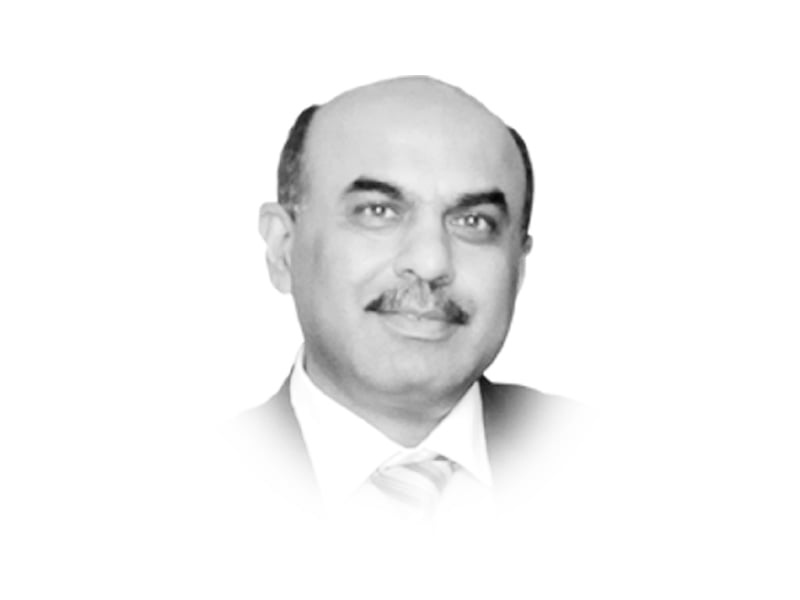
Recently, half a dozen polio immunisation workers were targeted by extremists within two days. Consequently, Unicef and the WHO suspended immunisation campaigns in the province. According to reports, this has deprived some 1.75 million children in the province of the vaccination, thus making them vulnerable to the crippling disease. A province with governance on a nosedive proffers endless opportunities to lawbreakers, including faith-motivated extremist elements. Sporadic incidents of religious prejudice were also witnessed during relief operations in the wake of recent floods. In some of the relief camps organised by religious parties, supplies to non-Muslims were denied. Although it was not a widespread trend, it was not too subtle, either. The collapse of the law and order apparatus, ubiquitous corruption and the indifferent attitude of the government towards merit and effectiveness of service delivery has left outlaws at full liberty to operate brazenly. Kidnapping, extortion, ransom, street crimes and murders are virtually condoned as the provincial government is seized with other priorities and often busy in appeasing a disgruntled coalition.
Certain districts of northern Sindh bordering Punjab and Balochistan are traditional safe havens for criminal gangs. The same triangle is now becoming a hub of fast sprawling seminaries. In fact, a middle class-led nationalist and cultural movement had been a bulwark against religiosity. The seamless shield protected Sindhi society even in the days of the Ziaul Haq regime. The PPP itself had been a liberal and secular party that dominated the political vista in the provinces for decades. As the party failed to deliver and lost its mettle to govern the province effectively, people’s trust in political institutions is shaken. The grip of the state in every sphere has weakened and the rural areas are virtually rudderless, with power and wealth dominating the course of everyday life. The state vacuum is now being occupied by an accretion of religiosity. In recent years, the secular values of Sindhi society have started morphing into religious sentiments. A stream of recent incidents also testifies to this, yet the mob-lynching was far from imagination in rural areas of Sindh. The pathological trend may manifest in more brutal acts if not forestalled immediately. The sneaking of extremist elements and weapons from other parts of the country is no more a secret. Seeta village is a grim reminder of the fact that egregious faith-based violence is not just an insinuation and can easily proliferate to other parts of the province as well. Reluctantly, one has to admit that Sindh is under assault of religiosity that may intensify further if left unbridled by the government, civil society and political parties.
Published in The Express Tribune, January 2nd, 2013.
COMMENTS (6)
Comments are moderated and generally will be posted if they are on-topic and not abusive.
For more information, please see our Comments FAQ












@Positive: Herr Positive begins with no - no . It is not this and it is not that. The positive for him is Sindh culture being ajrak and topi which sits on every head that is Sindh by negation. Then comes a rumble against government jobs. Be kind to readers !
I am not a sindhi by birth.....but living in Karachi for last five years for my profession...and would like to submitt following points, hopefully my sindhi freinds wouldnt get offended.
Sindhi culture day has become too much politicised.....so the writer's narrative of it as "an icon of peace and humanity" stands no where. This time it was not cultural day it was "Ekta jo Deharo" as projected by sindhi channels.......isnt this a politicisation of an event which should have been purely cultural only. Sindhi culture, to me, infact is not limited to sindh......it is present everywhere.....in multan.......from where I originally belong....we use sindhi ajraks and topis, sindhi topi is found everywhere in Pakistan.....and every ethnic group wears it.......and even in Afghanistan. Balochs, Pustuns, Hazaras, People across punjab, in potohar use sindhi topi and ajrak etc. I would request my sindhi brothers to use these as a symbol of unity of nation. My fear is creating too much hype and dividing certain cultural symbols only on the basis of ethnicity may alienate these symbols from other provinces or ethnic groups as it may be called only for sindhis etc. The problems generally in our country and specifically in sindh is that government jobs have become safe havens for the corrupt and low performers running from competition and merit.....as a result the state machinery has become paralized. You cannot get even the most ordinary of official job done without giving bribe. The condition has become so much rotten that when you go to any govt office........the officials there look at you as if you are not a person but a prey for them.......they wheigh you and prospects of the figure that you can 'afford' to pay them. The only remedy to this situation is meritocracy.Respected Naseer Memon has highlighted the situation where Sindh is heading for, he has rightly made responsible State, Civil Society and Media to paly their vital role to come over this maniac prevalance of so called extremism, otherwise it would be like a saying that, " Disease comes swiftly and goes away slowly"......its now the responsibilty at individually and collective level to educate the people about the norms and values of society, laws and the culture of toleration among masses!
Very thought provoking article. Sindh is only province of Pakistan which is so far less affected by extremists. State, media and vibrant civil society should not let Sindh be hot spot for extremists and fundamentalist mindset. Sindh has resisted extremist thanks to its Sufism and its tolerant social fabric. But some current incidents show that situation is getting bad too, before it is too late, lets defeat these early signs of extremism though rule of law, mass awareness and accountability.
To expect Sindh to be insulated from happenings in the rest of the country is to be gullible. Islamic militancy has been sweeping the country for decades and now resembles a Tornado ready to destroy all in its path. Levels of tolerance resemble a downward sloping curve with the gradient falling steeply. Could it just be that the general public shares the same militant mindset as the Al Qaeda / Taliban or is this suggestion blasphemous ?